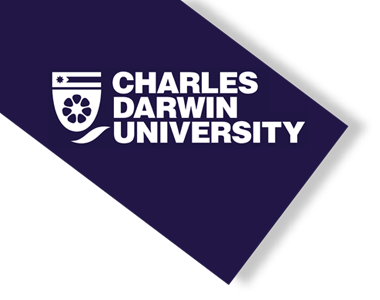Associate Degree of Engineering
Charles Darwin University
About
The Associate Degree of Engineering will provide a sound basis of fundamental engineering concepts, followed by the application of civil and structural, electrical and electronics or mechanical engineering theory and practice.
The course will help you to develop skills for solving common engineering problems as well as prepare you for further study of more advanced engineering concepts in the Bachelor of Engineering Science and Bachelor of Engineering Honours.
As a civil and structural engineering associate, you will contribute to the design, operation and maintenance of structures and systems for the modern world.
Key areas include water resources, roads and traffic, bridges and marine structures.
As an engineering associate in the electrical and electronics industry, you will assist with the design, automation and control of devices which make modern life convenient.
You are involved in electronics, telecommunications, biomedical applications and power generation, storage and distribution, including renewable energy.
As a mechanical engineering associate, you contribute to the design and construction of devices which improve transportation and provide more affordable manufacturing and production solutions.
Key areas include mechatronics, robotics, biomechanical applications, aeroplanes, cars, pumps and pipelines.
In addition to specific engineering knowledge, essential engineering skills including innovation, creativity and teamwork are developed.
This course was developed in consultation with and is supported by industry leaders.
It provides a sound foundation of engineering knowledge which can lead to further engineering study or to employment as an engineering associate.
Structure
Common Units(2 units) - 20cp
Common units totalling 20 credit points as detailed below.
CUC107
CUC106
Common Units
Core Units(5 units) - 50cp
Compulsory Core units totalling 50 credit points as detailed below.
ENG151 Statics ENG174 Electrical Engineering PMO201 Project Management SMA101 Mathematics 1A SMA102 Mathematics 1B ENG142 Concepts of Chemical Engineering (final offering 2019) has been removed as a core unit from 2020 - see transition arrangements below.
Specialist Elective(6 units) - 60cp
Units totalling 60 credit points selected from one of the specialist streams.
Chemical Engineering (no longer available for entry from 2020) SCH101 Chemical Concepts SCH102 Organic and Inorganic Chemistry ENG246 Process Analysis ENG247 Fluid and Thermodynamics ENG248 Unit Operations ENG341 Separation Process Principles
Civil and Structural Engineering ENG212 Mechanics of Solids ENG215 Surveying and Construction ENG247 Fluid and Thermodynamics ENG267 Hydraulics and Soil Mechanics ENG364 Materials Engineering ENG368 Steel and Concrete Structures
Electrical and Electronics Engineering ENG221 Analogue Electronics ENG223 Electrical Circuit Analysis ENG224 Electrical Machines and Power Systems ENG227 Electromagnetics and Communication Technology HIT235 Digital Systems and Computer Architecture HIT365 C Programming
Mechanical Engineering ENG212 Mechanics of Solids ENG235 Manufacturing ENG247 Fluid and Thermodynamics ENG252 Dynamics ENG338 Machine Design Principles ENG364 Materials Engineering
Electives(3 units) - 30cp
Select units totalling 30 credit points may be selected from undergraduate units offered by the University. Students may also take elective units via cross institutional enrolment.
ECO107
(replaces ECO105 from S2 2020)
ENV103
HIT137
HIT164
LAW105
MAN105
SCH104
SPH141
- 160
Total Credit Points
Entry requirements
Admission requirements are met by one of the following: Successful completion of the Northern Territory Certificate of Education and Training (or equivalent) and the awarding of an Australian Tertiary Admissions Rank (ATAR) of at least 60*. Successful completion of a national qualification at Certificate IV level or higher. Successful completion of at least 0.5 year of full-time study (or equivalent) of a higher education degree/diploma. Overseas secondary or tertiary qualifications considered equivalent to the above Australian qualifications. Attainment of a STAT Multiple Choice score of 135 (or a score of 145 if prior to May 2010). Successful completion of the Tertiary Enabling Program, the Preparation for Tertiary Success courses, or other recognised tertiary preparation course. Submission of an acceptable personal competencies statement and/or employment experience. * After any applicable adjustment factors have been applied.
Institution
